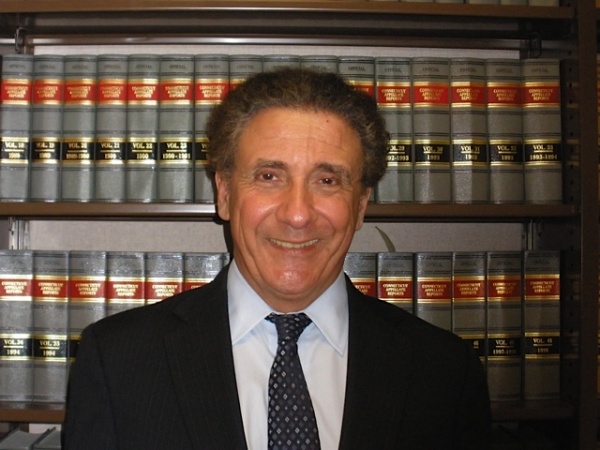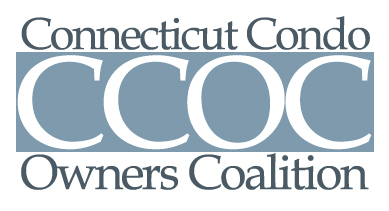General Assembly Passes Three Important Condo Bills In Connecticut
The Legislature passed three condominium-related bills during its 2013 Regular Session that ended at midnight on June 5th (PA 13-156, sHB 6662; HB 6477; and HB 6513)
As of now only one of the three has been given a public act number and they await the governor’s signature.
PA 13-156 expands the priority lien associations have when lenders foreclose on mortgages they hold on individual units from 6 to 9 months The bill specifies that this priority lien does not include any late fees, interest, or fines that the association assesses during that 9-month period. Also, the bill requires Associations to give first and second mortgage holders at least 60 days prior written notice before beginning a foreclosure action against a unit in order for the priority lien to include costs and attorney fees.
HB 6477 authorizes the Real Estate Commission to discipline a community association manager for a knowing and material violation of the condominium laws; expands unit owner’s rights to receive agendas before board meetings; establishes certain safeguards when associations provide unit owners with proxy voting forms; explicitly requires that associations keep detailed records of receipts and expenditures relating to any reserve accounts; and provides immunity from criminal liability for an alleged violation of the Fire Safety Code, the State Building Code or a municipal health, housing or safety code under certain limited circumstances.
HB 6513 changes requirements under the Common Interest Ownership Act (CIOA) for approval of annual budgets and special assessments for common interest communities and master associations exercising the powers on behalf of one or more common interest communities or for the benefit of the unit owners of one or more such communities, that have at least 2,400 residential units and were established before July 3, 1991 (It appears that only Heritage Village qualifies under this bill.)
Hartford Atty George Coppolo is a member of the Connecticut Condo Owners Coalition (CCOC) Advisory Committee.
This article is for general informational purposes only, does not constitute and should not be relied upon as legal advice and does not create an attorney-client relationship between the author or the author’s law firm (Gordon, Muir and Foley, LLP 860-525-5361) and any party. Statutes and case law vary from jurisdiction to jurisdiction and may change from time to time. You should consult a licensed attorney for legal advice relating to your specific situation.






While some improvement in Connecticut condo law has been made, much more is needed.
We need a measurement of CCOC legislative action success so we can begin planning now for 2014. I am interested in seeing a CCOC report card that identifies all the legislative suggestions CCOC unit owners (not just CCOC leadership) desired and supported this past year including the results of a member poll late last fall/early winter.
We the goals and interests of those unit owners who cared enough to respond to the CCOC call for legislative agenda items, and who wrote to CTCondoNews adequately addressed by CCOC leaders this season?
A simple matrix listing a complete “legislative wish list” with check marks identifying which items have been attained by new legislation would give us a clear road map of what was achieved and what direction we could go in moving forward.
Also, CCOC leaders should send an internal communication in the next few weeks to all CCOC members to see if others have an interest in becoming CCOC leaders to get new ideas and new energy into this group and then communicate the results of that inquiry back to CCOC members.
I agree. Having the opportunity to change leadership is good. And, a checklist of accomplishments will help to determine in retaining the reign of leadership or ask them to step down and bring on new energy and ideas. And, I am pleased with the results of this year’s session. However, there is more to accomplish with our Condo Laws. Thank CCOC, CAI & the Legislation.
We usually give 3 months before sending a delinquent owner to the attorney for collection. With this new law mandating notice of 60 days to the mortgagor, Associations will be forced to send owners sooner. Probably at 30 days so by the end of the 60 day notice, it will be 90 days to collection. Wow, that stinks for owners.
info on insurance coverage
I would like to get information on HB 6477. I have had a significant mold problem in my unit for the past 22 months and the Board has done nothing. I have filed a complaint with the city of Bridgeport. Id like to find out specifically what circumstances a Board can be held liable. Especially if their inaxtion results in a unit owner living in an unhealthy living environment. Thank you.
David – are you certain of the bill number.
Raised H.B. No. 6477
Session Year 2013
AN ACT CONCERNING VARIOUS REVISIONS TO THE COMMON INTEREST OWNERSHIP ACT AND THE CONDOMINIUM ACT.
To extend the number of months from six to twelve for which common expense assessments due a common interest unit owners’ association may be counted for purposes of a lien.
I can not locate original act 84-474 for review. I have condo creating outside preliminary lot addition.
It is questioned by local zoning enforcement officer.